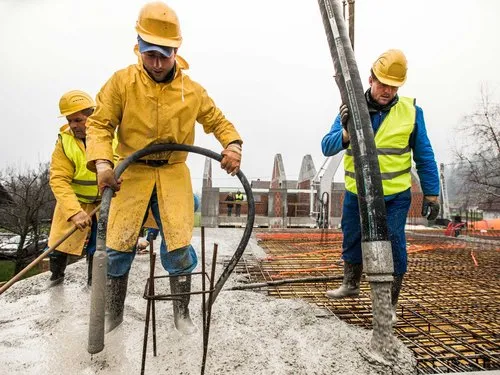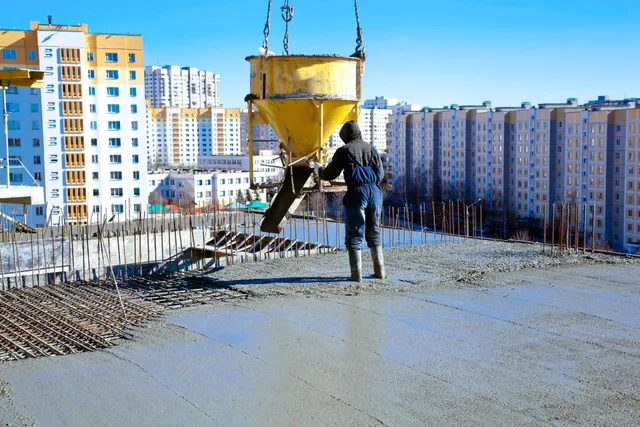When it comes to choosing the perfect material for your driveway, homeowners often find themselves weighing the pros and cons of concrete driveways vs. asphalt. Both options offer unique advantages and drawbacks, so understanding how each material performs in terms of durability, cost, and maintenance is essential before making a final decision. Whether you are building a new driveway or replacing an existing one, knowing the key differences between concrete driveways vs. asphalt can help you choose the best option for your home.
In this blog post, we will explore the major factors to consider when deciding between concrete driveways vs. asphalt, so you can determine which material better suits your needs. From cost comparison to long-term maintenance, we’ll break down everything you need to know.
1. Durability and Longevity
One of the most critical factors in the debate on durability in concrete driveways vs. asphalt is durability. Concrete is generally known to last longer than asphalt, with a lifespan of about 30 to 40 years, compared to asphalt’s typical 20 to 30 years. Concrete is harder and more resistant to wear and tear, making it a better choice for homeowners looking for a long-lasting option. However, asphalt also has its advantages when it comes to resilience.
Asphalt is more flexible than concrete, which means it can withstand the expansion and contraction caused by extreme weather conditions better. This flexibility allows it to handle freezing and thawing cycles, which is particularly important for homes in colder climates. While asphalt may not last as long as concrete, it is often more resistant to cracking caused by weather fluctuations.
If durability is a top priority for you, concrete may be the better option. However, if you live in an area with harsh winters, asphalt may offer better performance due to its flexibility. For more detailed guidance on choosing the right material, you can check out this article on choosing the right concrete service.
2. Cost and Budget Considerations
When deciding between concrete driveways vs. asphalt, budget is another essential factor to consider. In general, asphalt driveways are less expensive to install compared to concrete. Asphalt can cost anywhere from $2 to $5 per square foot, while concrete typically ranges from $4 to $10 per square foot.
Although asphalt may be the more affordable option initially, concrete’s longer lifespan often makes it more cost-effective over time. With fewer repairs and a longer lifespan, concrete driveways require less long-term investment. Asphalt driveways, on the other hand, need to be resealed every three to five years to maintain their appearance and structural integrity, adding to their long-term costs.
If you’re on a tight budget and looking for a quicker solution, asphalt might be your best bet. However, if you can afford the initial investment, a concrete driveway could offer better value in the long run.
3. Maintenance Requirements
Maintenance is a key factor when comparing concrete driveways vs. asphalt. Concrete is generally lower maintenance than asphalt, which requires regular sealing and repairs. Asphalt driveways need to be resealed periodically to protect them from the elements and prevent cracking or potholing. This sealing process can become costly over time, but it helps to extend the life of your asphalt driveway.
Concrete, on the other hand, does not require sealing, but it is more susceptible to staining. Oil spills and other automotive fluids can leave unsightly marks on concrete, so regular cleaning is necessary to maintain its appearance. While concrete driveways are easier to care for in terms of structural maintenance, keeping them free of stains might take more effort than maintaining an asphalt driveway.
In terms of overall ease of maintenance, concrete may be a better option if you prefer less frequent upkeep. However, if you’re willing to reseal the driveway periodically, asphalt can still be a viable choice.
4. Climate and Weather Resistance
Another significant aspect in the concrete driveways vs. asphalt debate is climate suitability. Asphalt is a popular choice for areas that experience cold weather due to its flexibility and ability to handle freezing and thawing cycles. In contrast, concrete is more prone to cracking when subjected to extreme temperature changes.
In hot climates, concrete tends to perform better than asphalt, as asphalt can soften and become sticky in high temperatures. This can lead to faster wear and tear in areas that experience prolonged heat. If you live in a region that experiences extreme heat or cold, you’ll need to weigh the pros and cons of each material based on your local weather conditions.
Homeowners in cold regions may find asphalt to be more durable, while those in warmer climates might prefer the heat resistance of concrete.
5. Aesthetic Appeal and Customization Options
When considering concrete driveways vs. asphalt, aesthetics can play a role in your decision. Concrete offers more customization options than asphalt, making it a preferred choice for homeowners who want a unique or decorative driveway. Concrete can be stamped, colored, or textured to create various designs and patterns, giving you the flexibility to match your home’s style.
Asphalt, on the other hand, is typically black and lacks the versatility of concrete when it comes to design options. However, some homeowners prefer the clean, classic look of a black asphalt driveway. While asphalt doesn’t offer as much in terms of aesthetics, it is still a practical and popular choice for many.
If curb appeal and customization are important factors for you, concrete is the better option. But if you prioritize function over appearance, asphalt might suffice.
6. Environmental Impact
Environmental considerations are becoming increasingly important for homeowners. When comparing concrete driveways vs. asphalt, it’s worth noting that asphalt is more environmentally friendly due to its recyclability. Old asphalt can be melted down and reused, making it a more sustainable option.
Concrete, while longer-lasting, is less eco-friendly due to the energy-intensive process required to produce it. However, new developments in green building materials have made it possible to reduce concrete’s environmental impact. Choosing recycled or eco-friendly concrete mixtures can help mitigate this concern.
If sustainability is a priority for you, asphalt may be the better choice due to its recyclability.
Conclusion
Ultimately, the choice between concrete driveways vs. asphalt depends on your budget, aesthetic preferences, climate, and long-term maintenance needs. Asphalt is a cost-effective option that performs well in cold climates and offers easy maintenance. Concrete, while more expensive upfront, provides durability, customization options, and a longer lifespan.
Consider the factors that matter most to you, such as aesthetics, durability, and climate, before making your decision. If you’re unsure which option is right for your home, you may want to consult with a general contractor to discuss the best material for your specific needs.
To learn more about how to choose the right concrete service for your home, visit this guide.




